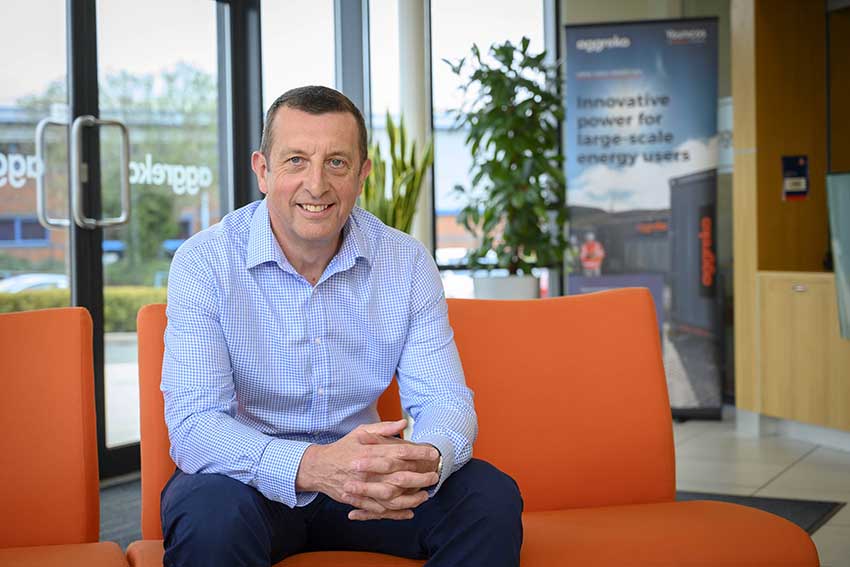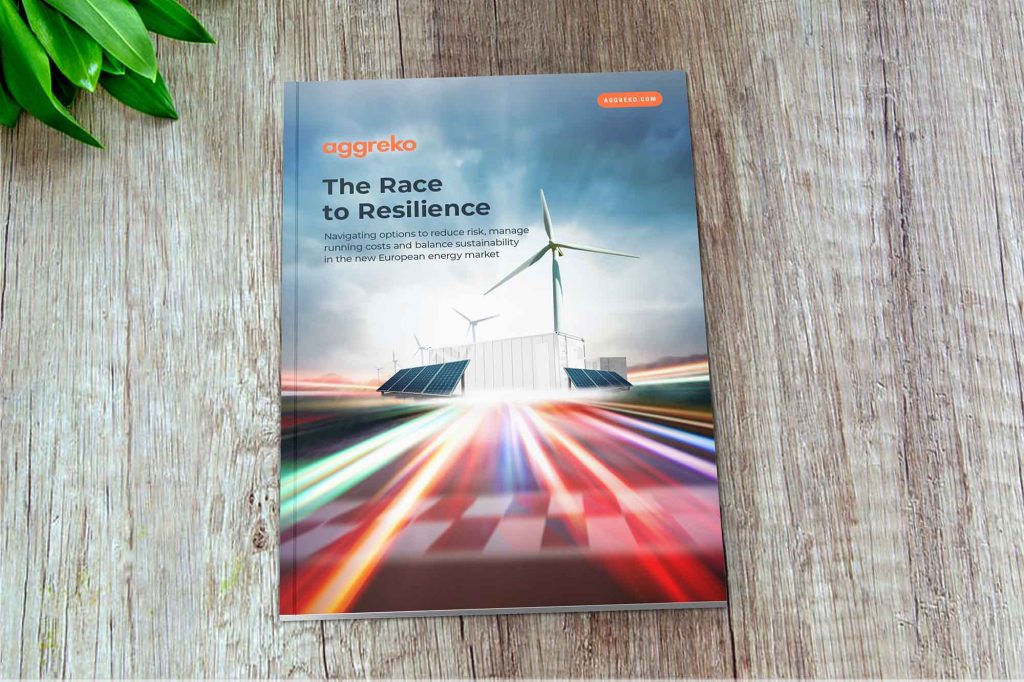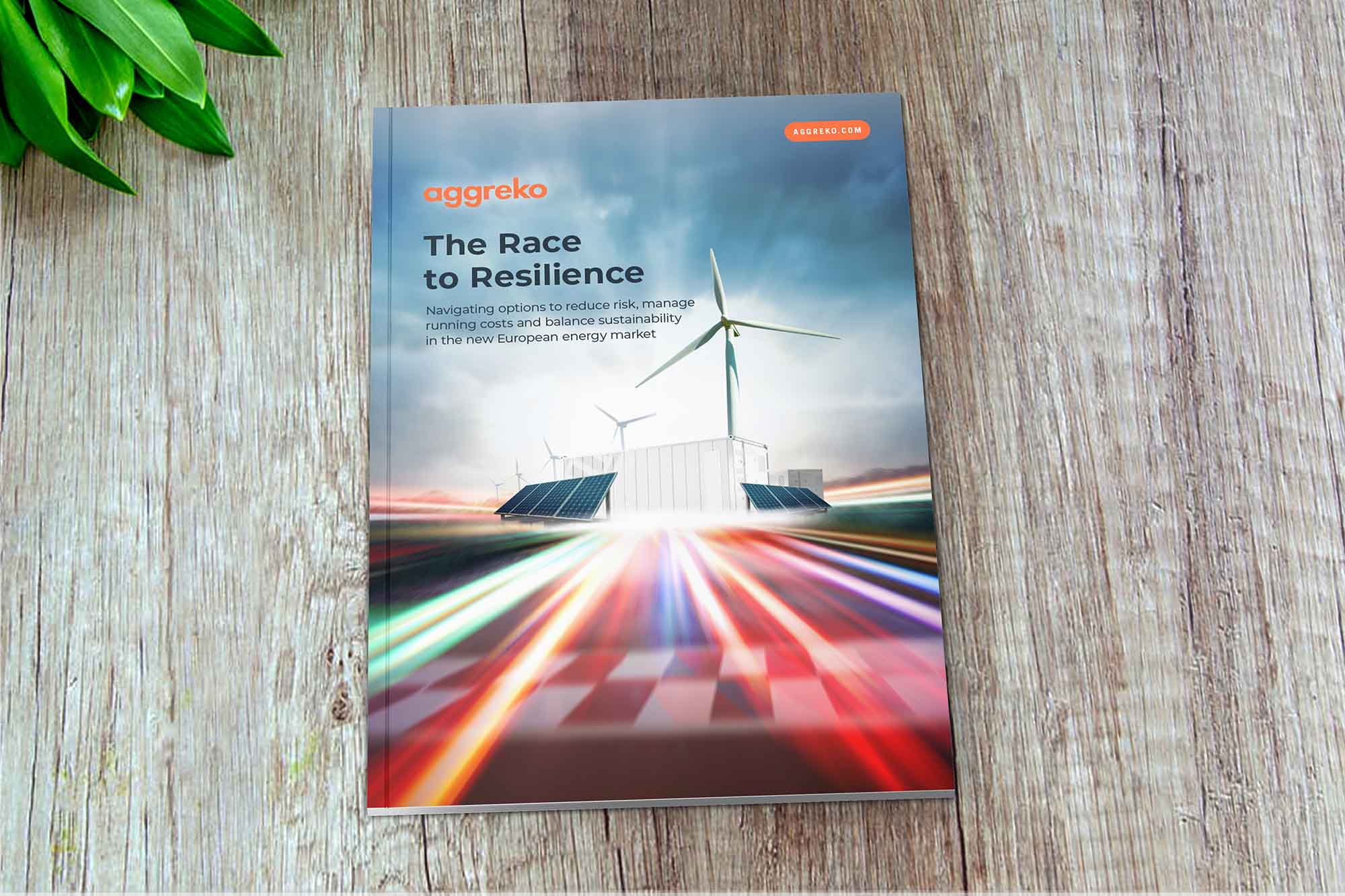European industry is suffering from chronic energy instability due to ageing infrastructure, soaring bills and the ongoing integration of renewable power sources. Chris Rason, Managing Director – Energy Services at Aggreko Europe, looks at how diversifying on-site energy models and opting for decentralised power provision can safeguard power supplies, limit exposure to pricing volatility and improve business resilience.
Energy in Europe continues to be impacted by competing issues, including ongoing decarbonisation, price volatility and ageing grid infrastructure. Flashpoints are also becoming increasingly common over major issues, including whether the EU should continue subsidising coal plants to avoid another energy crisis. Similarly, the bloc’s Scientific Advisory Board’s recommendation that immediate emission cuts of 90-95% are needed if the EU is to remain on-track with Paris Agreement and 2050 net zero targets is placing further pressure on Member States to consider additional decarbonisation measures.
This lack of agreement on subsidies and sustainability has brought energy security back onto the continent’s agenda – an unwelcome development after a fraught 2022. But with the EU committed to increasing renewable energy production to at least 42.5% of total consumption, these twin pressures may make grid power less reliable.
‘Dark Doldrums’
The reason for this instability is that renewables have traditionally been less secure than their fossil fuel counterparts, as they are reliant on more changeable conditions. For instance, in the event of prolonged cold, cloudy and windless weather, little to no power can be produced from solar and wind sources. These periods, known in the renewable energy sector as ‘dunkelflaute’ – German for ‘dark doldrums’ – necessitate the use of backup power sources to cover shortfalls.
The UK offers an interesting case study – while wind usually accounts for 20% of the country’s overall energy production, it dropped to as low as three percent in December 2022 following a cold snap. Without a deal struck on subsidies, gas supplies continuing to be stretched by geopolitical events, and fossil fuels being phased out, these events may become more common in the EU too.

In sectors where disruption is to be avoided at all costs, this instability poses real concerns. Data centre professionals, for example, may have to account for increasing disruption at a time when the Uptime Institute is already warning that European facilities will experience more grid disturbances in 2023 and beyond. Given Statista is also reporting that the continent’s data centre market is set to expand by four percent from 2023 to 2027, concerns over dwindling supply and increasing demand may soon come to a head.
It’s against this challenging business landscape that Aggreko has launched The Race to Resilience, its latest report. The research explores new approaches energy-intensive industries can take to manage pressures that are often beyond their direct control. This includes implementing decentralised power solutions, and how these technologies can safeguard existing operations, alleviate unplanned disruption and mitigate rising bills.
Why Diversify?
Considering the fragility of European grid infrastructure, the need to take immediate action is clear. The Dutch province of Overijssel recently reported that its grid was at full capacity, underlining that this is not an issue for the future; its impacts are already being felt today. Events like these were key drivers behind the development of The Race to Resilience, which aims to provide stakeholders in affected sectors with the knowledge needed to navigate a challenging business environment.
However, this is not to say the EU is unaware of its problems. In September 2022, it set out directives mandating member states cut their national consumption by at least 5% during peak hours. The European Commission is also working to reduce the energy pricing volatility that hampered businesses throughout 2022, with proposals to update the bloc‘s electricity market rules and expand the use of fixed-price power contracts.
Taken together, these actions can be treated as concessions for a grid that will struggle to cope without significant changes to traditional energy models. But even the extra support proposed by the Commission is a short-term solution to a long-standing problem that could leave energy-intensive industries exposed. To that end, a move towards more decentralised energy solutions to supplement existing power supplies is understandable, logical and potentially inevitable.

Race to Resilience
Implemented as part of a modular hire equipment strategy, on-site power generation technologies, can help organisations maintain consistent power provision that can be reduced or increased depending on site needs. Issues surrounding permanent installations, such as stranded assets and under- or over-specified generators or other equipment are also avoided. Supplied equipment can instead be scaled up or down as circumstances change, or when new technologies become available.
Consequently, solutions including Stage V generators, Battery Energy Storage Systems and other installations fuelled by sustainable hydrotreated vegetable oil (HVO) can be used to power sites independently or alongside the grid. Working this way, operators can increase overall resilience and sustainability, without affecting capex budgets – advantages further explored in The Race to Resilience.
To give decision-makers a starting point when identifying these models, the report also highlights a series of calculators developed by Aggreko, covering topics and company initiatives including its Hire Vs Buy, Grid Compare, Data Centre Power Selector and Greener Upgrades schemes. These offer an important initial step for means-testing alternative approaches for power or temperature control.
European facilities are under real pressure on multiple fronts. Ongoing decarbonisation, fluctuating energy prices and grid limitations are creating a situation where consistent energy provision can no longer be taken for granted. While a completely decentralised future is still a long way off, there are immediate steps industry can explore to ensure greater resilience and stability in the short- to medium term, while also improving sustainability.
To download Aggreko’s new report, The Race to Resilience, click here.

